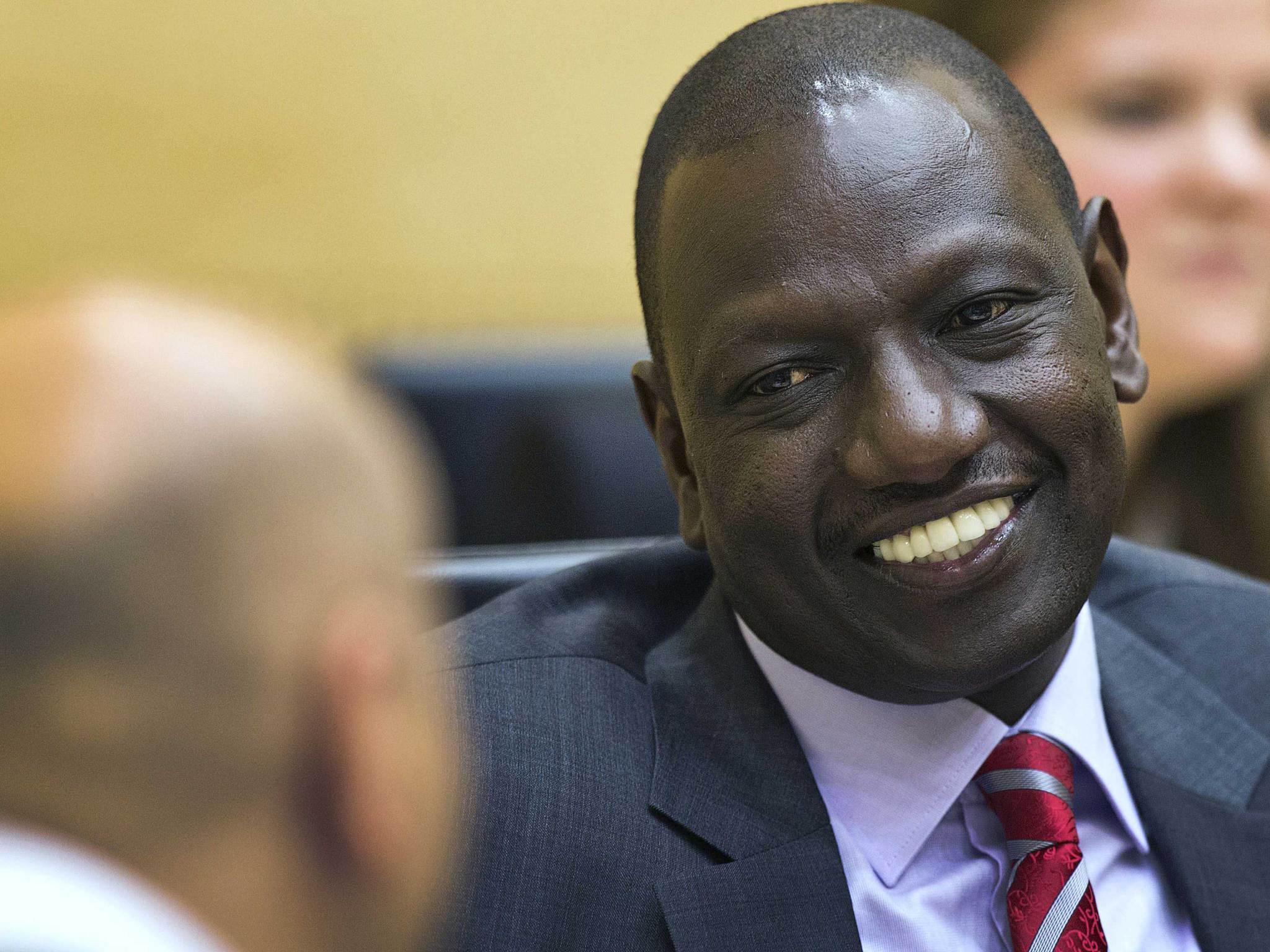Kenya's deputy president William Ruto pleads not guilty as trial over 'crimes against humanity' starts
First serving official to appear at the ICC alleged to have orchestrating the deadly violence in the aftermath of elections in 2007

Your support helps us to tell the story
From reproductive rights to climate change to Big Tech, The Independent is on the ground when the story is developing. Whether it's investigating the financials of Elon Musk's pro-Trump PAC or producing our latest documentary, 'The A Word', which shines a light on the American women fighting for reproductive rights, we know how important it is to parse out the facts from the messaging.
At such a critical moment in US history, we need reporters on the ground. Your donation allows us to keep sending journalists to speak to both sides of the story.
The Independent is trusted by Americans across the entire political spectrum. And unlike many other quality news outlets, we choose not to lock Americans out of our reporting and analysis with paywalls. We believe quality journalism should be available to everyone, paid for by those who can afford it.
Your support makes all the difference.Kenya's Deputy President William Ruto pleaded not guilty to crimes against humanity charges as his trial opened at the International Criminal Court in the Netherlands.
Mr Ruto and broadcaster Joshua Sang are accused of orchestrating the deadly violence in the aftermath of his country's disputed 2007 election. They deny the charges.
Mr Ruto, the first serving official to appear at the ICC , and President Uhuru Kenyatta are being tried separately at The Hague.
Mr Ruto formed an army prior to the elections to "go to war for him", the prosecution has alleged. His lawyer accused prosecutors of conducting a flawed and prejudicial investigation using tainted evidence and raised the possibility - not yet confirmed by judges or prosecutors - that this week's hearings would be adjourned because witnesses for the prosecution could not attend court.
Prosecutors have claimed widespread intimidation leading up to the trial and some witnesses have refused to give evidence, throwing the strength of the case into question.
A lawyer for victims of the violence, Wilfred Nderitu, warned of grave consequences of such widespread witness intimidation, saying it "could spell the death knell for this court and for international criminal justice."
Prosecutor Fatou Bensouda, in her opening speech, insisted the charges against the two men would stand.
"The crimes of which Mr Ruto and Mr Sang are charged were not just random and spontaneous acts of brutality," said Mrs Bensouda.
"This was a carefully planned and executed plan of violence... Ruto's ultimate goal was to seize political power for himself and his party in the event he could not do so via the ballot box."
Mrs Bensouda told the court and a public gallery packed with Kenyan supporters of the two defendants that Ruto used networks within his Kalenjin tribe to target political opponents and members of the rival Kikuyu tribe.
Mrs Bensouda said more than 200 people were killed in the Rift Valley and 1,000 injured. Thousands more were forced from their homes.
"It is difficult to imagine the suffering or the terror of the men, women and children who were burned alive, hacked to death or chased from their homes by armed youths," she said.
Mrs Bensouda called the attacks "a carefully planned, coordinated and executed campaign of violence" targeting Kikuyu supporters of the Party of National Unity.
Mr Sang is accused of using his popular radio show to whip up hatred against Kikuyu tribe members and even allegedly broadcast coded instructions to direct attackers to their targets.
The case is a critical test for the ICC to demonstrate it can successfully prosecute an African leader. In November Kenyan President Uhuru Kenyatta, Ruto's former rival and now his political ally, will stand trial on similar charges.
Former United Nations Secretary-General Kofi Annan, who helped broker peace in Kenya in 2008 said in an opinion piece in The New York Times: "These trials also do not reflect the court's unfair targeting of Africa, as has been alleged," he wrote. "Instead they are the first steps toward a sustainable peace that Kenyans want, deeply, and can only be assured of if their leaders are not above the law."
The court also has Ivory Coast's former president Laurent Gbagbo in custody, charged with post-election violence, and has indicted Sudanese leader Omar al-Basir for genocide in Darfur.
Additional reporting AP, Reuters
Join our commenting forum
Join thought-provoking conversations, follow other Independent readers and see their replies
Comments